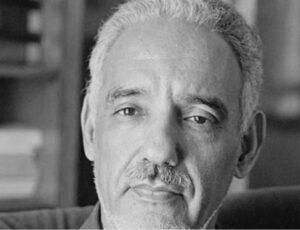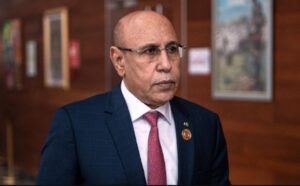Mauritania, a West African nation, gained independence from France in 1960. Since then, the country has experienced a series of leadership changes, marked by a mix of democratic transitions and military coups.
Below is a table listing the presidents of Mauritania since its inception, followed by a detailed look at the first president, the current president, and the current vice president.
READ ALSO: Presidents That Have Ruled Djibouti Till Date
| President | Years of Tenure |
|---|---|
| Moktar Ould Daddah | 1960 - 1978 |
| Mustafa Ould Salek | 1978 - 1979 |
| Mohamed Mahmoud Ould Louly | 1979 - 1980 |
| Ahmed Ould Bouceif (Acting) | 1979 (briefly) |
| Mohamed Khouna Ould Haidalla | 1980 - 1984 |
| Maaouya Ould Sid'Ahmed Taya | 1984 - 2005 |
| Ely Ould Mohamed Vall | 2005 - 2007 |
| Sidi Mohamed Ould Cheikh Abdallahi | 2007 - 2008 |
| Mohamed Ould Abdel Aziz | 2009 - 2019 |
| Mohamed Ould Ghazouani | 2019 - Present |
The First President of Mauritania: Moktar Ould Daddah

Moktar Ould Daddah was born in 1924 in Boutilimit, a town in what was then French West Africa. Coming from a prominent family, he pursued higher education in France, where he studied law and politics, which equipped him to play a significant role in Mauritania’s independence movement.
Before becoming president, Daddah was actively involved in politics. He was a member of the Territorial Assembly of Mauritania and later became the president of the Executive Council of Mauritania, essentially the prime minister, during the transition period leading to independence.
Notable Achievements
- Independence Leader: Daddah is celebrated for leading Mauritania to independence on November 28, 1960, becoming the country’s first president.
- Economic Development: He promoted economic policies aimed at modernizing Mauritania, focusing on infrastructure development and education.
- Non-Aligned Movement: Daddah aligned Mauritania with the Non-Aligned Movement during the Cold War, maintaining a neutral stance in global affairs.
Downsides
- Authoritarian Rule: Over time, Daddah’s government became increasingly authoritarian. In 1964, he declared Mauritania a one-party state, consolidating power and limiting political freedom.
- Overthrown by Military Coup: Daddah’s tenure ended abruptly in 1978 when he was overthrown in a military coup, primarily due to dissatisfaction with his handling of the Western Sahara conflict and economic difficulties.
READ ALSO: Presidents That Have Ruled Djibouti Till Date
The Current President of Mauritania: Mohamed Ould Ghazouani

Mohamed Ould Ghazouani was born in 1956 in Boumdeid, in the Assaba region of Mauritania. He comes from a prominent tribe and has a military background, with advanced military studies in Morocco and France.
Ghazouani had a distinguished military career before entering politics. He served as the Chief of Staff of the Mauritanian Armed Forces from 2008 to 2018. He was also a close ally and the defense minister under former President Mohamed Ould Abdel Aziz.
Notable Achievements
- Peaceful Transition: Ghazouani’s election in 2019 marked the first peaceful transfer of power between elected presidents in Mauritania’s history, a significant milestone for the nation.
- Economic Reforms: His presidency has focused on economic diversification and reform, aiming to reduce Mauritania’s dependence on extractive industries like mining and fisheries.
- Anti-Corruption Efforts: Ghazouani has initiated efforts to tackle corruption, which has been a long-standing issue in Mauritania, earning him praise both domestically and internationally.
Downsides
- Human Rights Concerns: Despite some positive steps, Ghazouani’s government has faced criticism for continuing human rights abuses, particularly concerning the treatment of marginalized communities such as the Haratin, an ethnic group with a history of slavery.
READ ALSO: Presidents That Have Ruled Guinea-Bissau Till Date
The Current Vice President of Mauritania: (Position Vacant)
Currently, Mauritania does not have an official vice president. The country’s political structure, particularly since the 1991 constitution, does not include a vice president position.
Conclusion
Mauritania’s political history has witnessed a series of changes, characterized by both military interventions and democratic progress.
From the pioneering leadership of Moktar Ould Daddah to the current reforms under Mohamed Ould Ghazouani, the country continues to navigate the challenges and opportunities of governance in West Africa.
